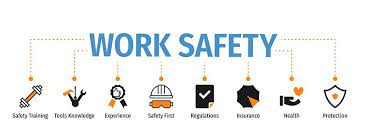Safety in the Industrial Workplace
Safety at work is a priority for industries such as manufacturing and industrial. Safety basics are important to ensure employee safety. Failure to do so can result in a decrease in productivity and even costly fines. When safety is prioritised, companies see an increase in employee productivity and growth.
Industrial Safety Tips for Better Operations
Here are some industrial workplace safety tips that you might want to implement in your business.
- Promote a culture of safety
Safety tips for industrial workplaces begin with company culture. Safety guidelines should not hinder employees from performing their job.
Managers must follow the same safety guidelines as their employees to create a safety-focused culture. A employee safety team, or leadership group can serve as a guide for workers. The employees need to feel that they are able to voice their opinion about safety protocols, and possible hazards.
- Wearing safety equipment is a no-brainer
It is vital that employees are provided with the proper personal protective equipment. It also helps you to avoid penalties for PPE violations.
This includes steel-toed shoes, hard hats and safety glasses. The employees must also understand why it is important to wear safety equipment. Protecting equipment is also important. For Pipe protectors, contact https://www.meterbox
- Clear work areas and emergency exits
It is not only required by fire codes that emergency exits be clearly marked, but also ensures the safety and health of your employees. In the event of an emergency, you’ll want to ensure that your employees can safely and quickly leave the building without tripping on boxes or other debris.
- Only authorised personnel should operate machinery
Safety tips for industrial workplaces include only allowing authorised personnel to operate machinery. Preventing workplace accidents can be achieved by ensuring that only licensed or certified employees operate equipment such as forklifts.
- Eliminate fire and chemical hazards
Store combustible materials and chemicals in a secure area, away from potential ignition sources. It is important to consider how you will dispose of fire hazards and chemicals. Use metal waste receptacles, and comply with health and safety laws pertaining to disposal.
- Regular safety audits and inspections
You won’t catch every safety violation if you just stroll through your workplace. You need to actively look out for it. You can spot potential hazards by scheduling routine safety checks into your weekly schedule.
- Report any unsafe conditions
One of the best ways for workplace safety is to encourage employees to inform their managers about unsafe conditions. You want your staff to feel comfortable reporting hazardous conditions.












Post Comment